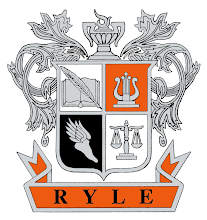By SARAH GRAHAM
In March, The Choice introduced a series called Counselor’s Calendar, to keep students on track during the college admissions process.
This installment focuses on the class of 2014, who will soon begin their junior year. (Rising seniors, your August checklist was published on Monday.) We’ve asked Sarah Graham, the director of college counseling at Princeton Day School in Princeton, N.J., for this month’s admissions advice for rising juniors. — Tanya Abrams
In my career as an Ivy League admissions officer and college counselor, I’ve found that students who are happiest through the college admissions process — and with the end results — share some “best practices” that start in the beginning of junior year. Those common themes inspire this month’s checklist:
Keep Perspective
Relax! You are not behind. You can, however, start taking active steps now to make the admissions process as smooth as possible. Take a deep breath, and try to keep in mind that there really is a great college match for everyone.
Develop a Plan for This Year
Planning now will reduce anxiety later. Map out some key dates now before the pace of the year picks up. Devote a calendar solely to the college process. Decide when to tackle some of the bigger admissions tasks for this year. For example, plan to take the SAT and/or ACT at least once this year, as well as SAT Subject Tests, if they are required by the schools you’re considering. Take some time to review what each test covers, and decide how to prepare. Make a note of registration deadlines on your calendar.
Also, figure out when you will be able to visit colleges this year to block off the time and plan those trips well in advance. Aim to see many different types of schools at first (large, small, urban, suburban, etc.) to get a sense of what’s out there.
Find Out What Support Your High School Offers
The students who are most successful in the college admissions process are proactive and take advantage of the resources available to them. Don’t just wait for information to come to you: take the initiative and find out what services your high school provides to guide you through the college admissions process.
Ask how often you should expect to receive messages from your guidance office and how they communicate information. Make note of coming presentations on your calendar. Find the guidance office’s bulletin board, and check it often.
Thoroughly read e-mails and newsletters that counselors send, and pay attention when they make announcements. (Parents, this applies to you, too.) Too often, students have so many resources at their fingertips but fail to realize that until it’s too late to take advantage of them. Likewise, families often spend big money on college admissions services when they can get the same (if not better) information for free.
Also, when you meet with your counselor, go prepared with a list of updates about what you’ve been doing in regard to the college process, as well as a list of questions.
Reflect on Your Activities
Now that you’re halfway through high school, it’s a great time to reassess your extracurricular activities. When I worked in admissions and read applications, I loved to see students who were excited about what they did outside the classroom. Communicate that enthusiasm by taking on more responsibilities in the activities you love and by seeking to develop those interests to the fullest.
Set some goals for this year: Aim for quality and not quantity in your activities. Love the things you do, and take on more leadership in those areas. No time? Consider cutting back on one or two activities you don’t like as much to make time to pursue others in greater depth.
Keep the Focus on Academics
As you gear up for junior year and the new tasks it will bring, remember your studies still need to come first. The story that your transcript tells about you as a student will be the most important part of your college application. Also, working hard, meeting with teachers for extra help and developing knowledge of how you study and learn best will help make you a more successful college student.
Start to Research Different Majors
Take some time now to read about majors that sound appealing to you, and gain a sense of what’s involved when studying towards those majors. Most students change their minds about a major when they get to college (and that’s fine), but it’s still a good idea to start getting a sense of what’s out there. Your focus now should not be on choosing a major definitively but on learning more about your options. More information about majors and careers can be found online, like the College Board’s Big Future Web site. For more detailed career information, students often enjoy the Occupational Outlook Handbook.
Savor the Rest of the Summer
While I recommend you follow up on these action items, please also take some time while the weather’s warm and the days are long to enjoy a few more ice cream cones with friends, take a long walk at sunset and rest up to start the new academic year rejuvenated. Sure, it may be a busy year ahead, but you’re ready for it!
Do you have any college admissions advice for rising juniors? Would you like to share your thoughts about the coming school year? Please feel free to share in the comments box below.
This post was prepared in consultation with the Association of College Counselors in Independent Schools, a membership organization. http://thechoice.blogs.nytimes.com/2012/08/07/counselors-calendar-august-juniors/
An M.L.K. Landmark Is Revived at a Tense Moment for Historical Sites
-
The Masonic lodge that served as the home base for Dr. King’s activism will
soon be open to visitors. It had long been considered endangered.
2 hours ago















No comments:
Post a Comment